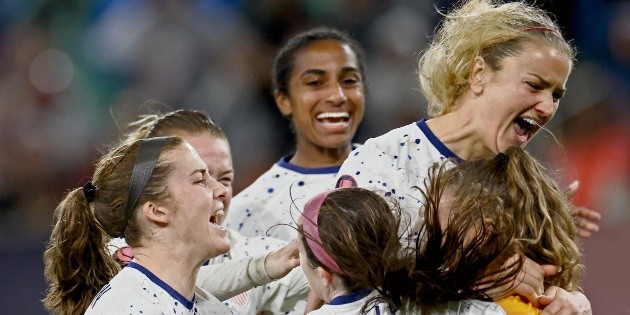To what extent is social inclusion related to sport? That was the question I asked myself when I started researching material to develop this article.
All of this comes from the fact that this is the last week in which contributions are being included in the so-called “Bicentennial Charter”, which, according to its promoters, aims to reach a national agreement on the main issues plaguing a country.
Contributions must be included by the 28th day on the agora.gob.pa platform. After that, they start in other stages until they reach what was promoted by the “national dialogue”.
It remains to be seen what will be achieved through this initiative, because as I mentioned before, proposals like this have multiplied over the years and the only thing that has been achieved is to keep the countless useless bureaucrats, who have spent their entire lives. All kinds of subjects have been analyzed and have never landed.
The same could happen to so-called dialogue, if those responsible for developing it did not implement a fruitful, informative, and dynamic calendar similar to that implemented by the Electoral Court (TE) with electoral reforms, otherwise, there would not be much fuss about it.
But what are we going to do? To what extent is social inclusion related to sport? This is a valid question, given that in the framework of the aforementioned dialogue, it is expected that a group of people will come together to analyze, discuss, and derive the proposals made in mathematical problems.
Not exhaustive proposals
Of course, the concept of inclusion is more complex than many imagine. It is like resilience, which some only associate with “the possibility of recovery from adversity,” when in reality one word carries other, more comprehensive concepts.
Inclusion indicates, according to the United Nations (UN), that existing systems will provide access and mutual participation and that the individual with a disability and their family will enjoy equal participation.
Ultimately, social inclusion in sport should be just as important as education, health and housing, for example.
However, it had reviewed more than 200 of the 3,800 proposals recorded in mathematical matters and 40 of the 1467 in terms of inclusion, as of Tuesday, February 16, and neither of them referred to the other jointly.
Nothing is comprehensive
Proposals related to sport vary widely, from building artificial stadiums or playgrounds to establishing neighborhood sports schools.
Some were more creative and requested to build a hotel for athletes who focus, as is the case with the National Institute of Sport (Indes) in El Salvador; Others, youth centers by town for music, arts and sports classes.
The indigenous comarcas were not left behind and required governments to introduce policies aimed at developing various disciplines and discovering future talents for national teams.
However, no suggestion has been reached regarding the possibility of special areas for the disabled in the construction of terraces or indoor playgrounds, in the stands, in the bathrooms, or in the dressing rooms.
Also, I did not notice that in those who spoke about community courts, there was a point indicating special characteristics for people with some kind of disability.
Even more disturbing is that in the very few buildings where the Panamanian Institute of Sport (Pandeportes) operates, such as the Eduardo Campbell gym, in Santiago, or Sión Cohen, which they intend to build in Chitré, think about disabled athletes and their limits.
We say this because with regard to the stadiums that are being built or that are being built or planned (Boquete, David, Chaninola, Las Tablas), there is no kind of specification in this regard.
Along these lines, Panamanian journalist Aurelio Moreno told us that in the various stadiums and arenas in the United States, where he resides, there are special areas for people with reduced mobility, whether in the stands or in the bathrooms.
“In the United States, not only stadiums, but in all the facilities that go to them, there are in malls or supermarkets these special areas or some additions have been added to them, in this sense,” he said.
He added, “All the stadiums I attended are enabled so that people with a physical problem can move, even if they are alone.”
But he emphasized that there are dedicated personnel outside the stadiums to deal with these types of situations and after putting them in a favorable place with their family, they remain vigilant in case another kind of attention is needed.
A comprehensive agenda
Gimple Chivondo, a young poet from Cologne with impaired mobility, noted that the reality of disabled athletes from Colón is that “they have no room to practice, and they cannot access existing fields.”
Essentially, Jembell, who participates in many movements for the social inclusion of people of African descent, said that she once went to see a basketball match at the Arena de Colón, and only wanting to participate was “a scary thing” because the gym was not available. . It is enabled for people with limited physical conditions.
And he specified that from his platform it was suggested that the disability “variable” be in all the major issues of the Bicentennial Charter, so that it is not treated as a separate line, but rather encourages inclusion in different spaces.
“But this also depends on whether there is an organization, community, or an organized civil society that creates the proposal, because the proposals will not be presented other than those that are uploaded to the oragora platform, but the ones that exist will go for evaluation,” he said.




